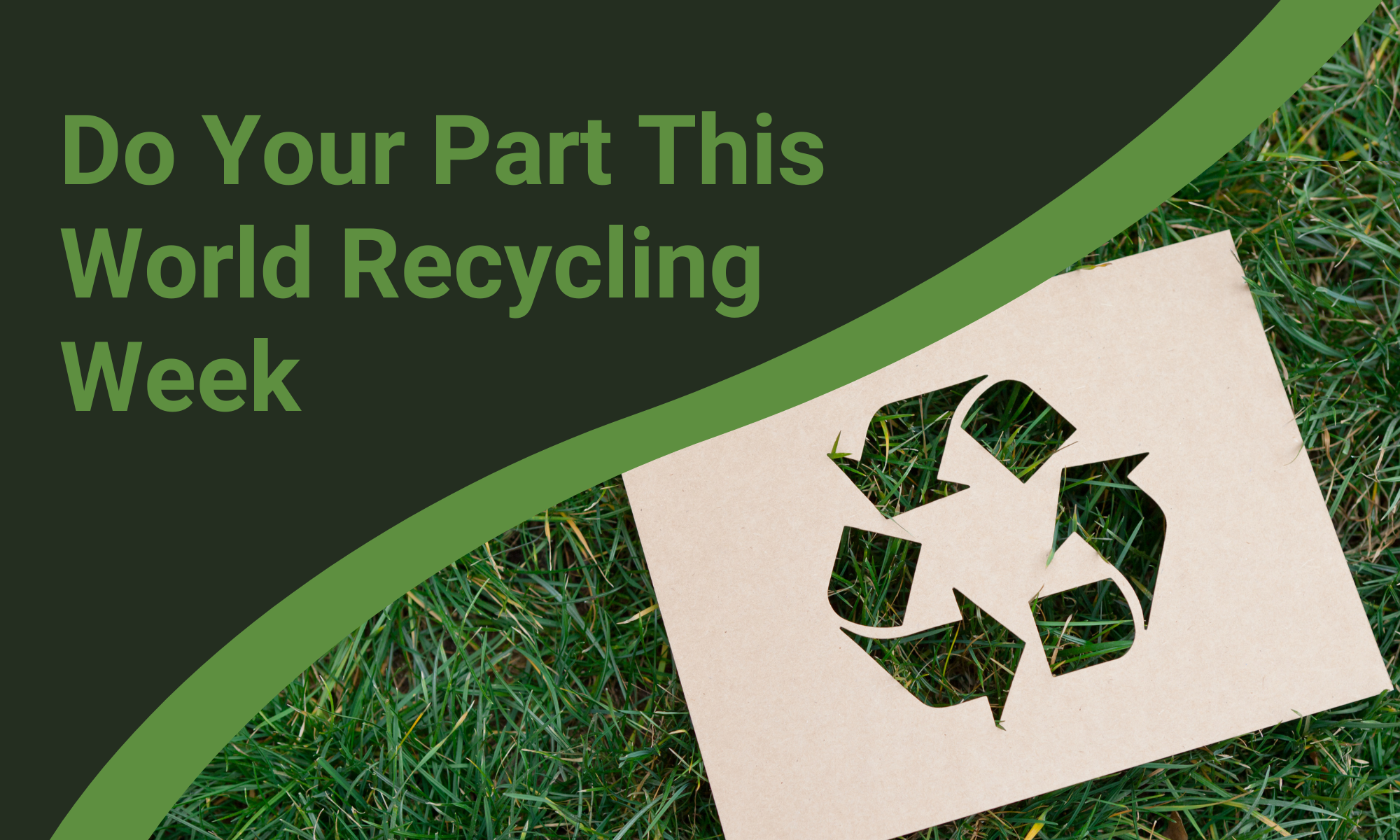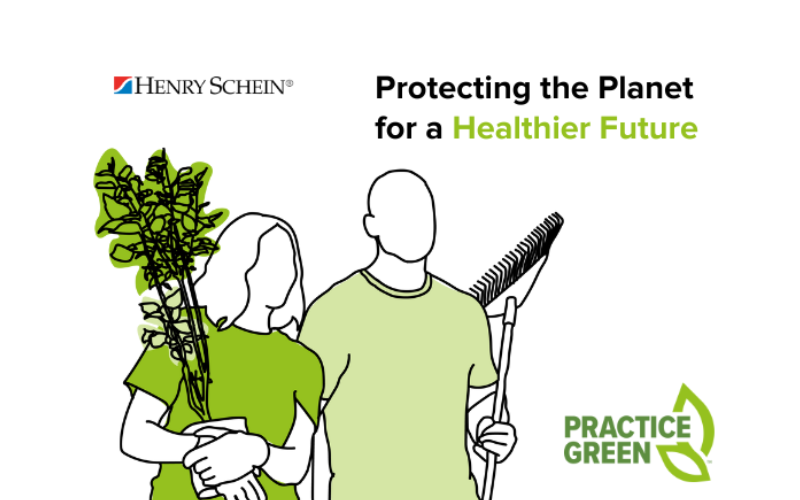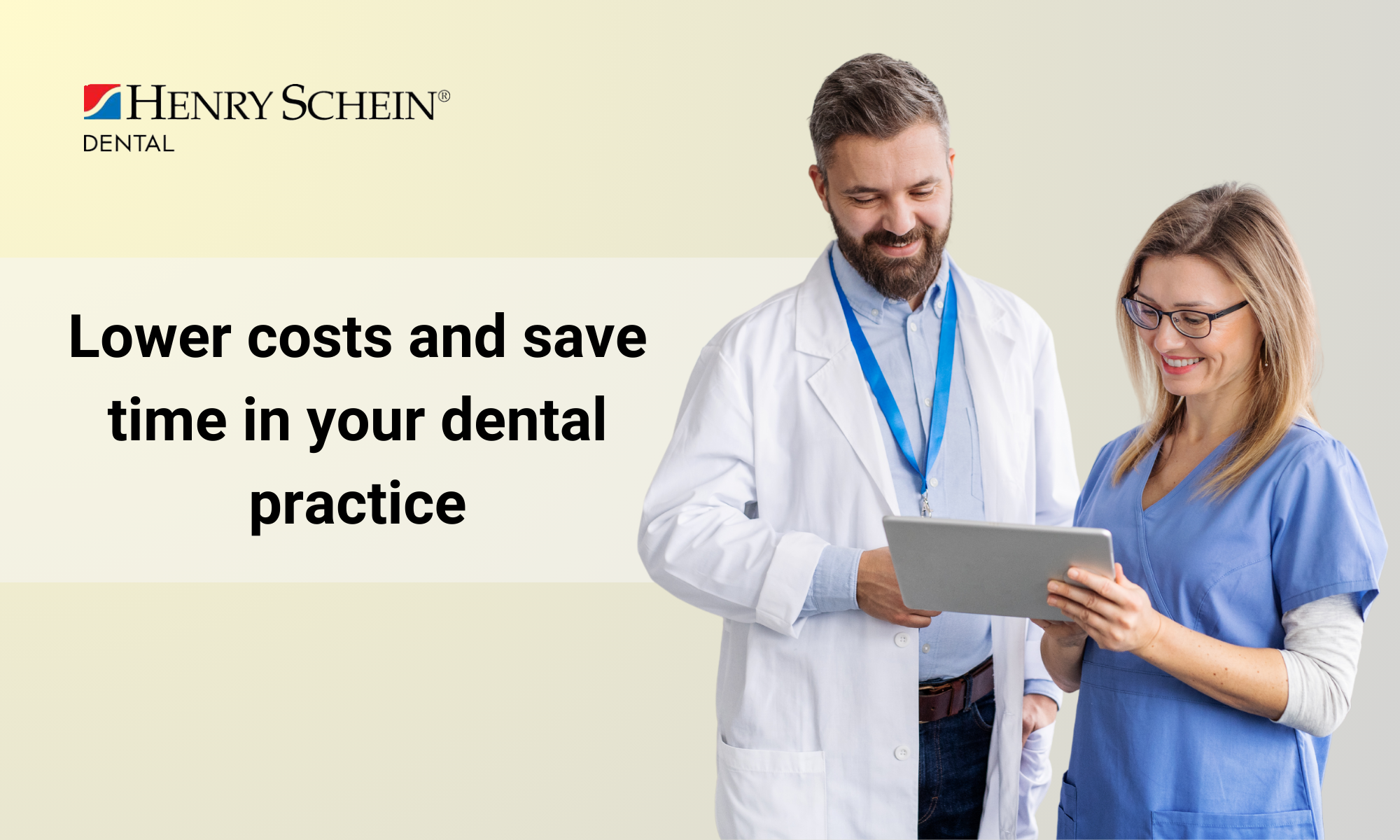Five top tips to increase recycling in your dental practice

Shine a spotlight on recycling in your dental practice this World Recycling Week, 14th-20th October.
Are you doing everything you can? Do you sometimes let laziness get the better of you? When it comes to recycling, every little counts, and we can have the biggest effect on the planet when we’re all doing as much as we can.
The 2024 theme of World Recycle Week is ‘Rescue Me’, focusing on saving recyclable items from the general waste bin.
In dentistry, as in any medical field, proper waste disposal is paramount, and medical waste disposal is closely regulated for everyone’s safety. Moreover, dental practices still must rely on many single-use disposable items in order to maintain the high standards of hygiene needed.
However, even within these strictures, there are things you can do to make sure you are recycling as much as possible, and doing everything you can to minimise the effect your dental practice has on the environment.
Read our five top tips to increase recycling in your dental practice.
1. Switch to recyclable or biodegradable dental supplies
Recycling isn’t all about putting cardboard in the right bin, it also means making sure you’re buying products made from recycled products wherever you can.
At Henry Schein as part of our Practice Green initiative, we offer a range of certified green products, which are either recyclable, biodegradable, or made from recycled materials. Swap out your plastic cups of paper ones, and buy bamboo toothbrushes or silk floss instead of plastic or nylon.
Why does this help?
Single-use plastics are one of the biggest problems facing our planet, by reducing our reliance on such products, we can reduce the negative impact we have. Single-use plastics are a reality of healthcare, they are necessary for maintaining hygiene, which is why it is so important that we make changes wherever we are able.
2. Set up clearly labelled recycling stations
 The easier recycling is made; the more likely people are to do it. There is sometimes a lot of confusion over recycling rules – what can be recycled? What condition does it need to be in? Is there a minimum size? What if it’s dirty? – and as a result of this unsurety, people opt not to recycle to avoid putting something non-recyclable in the recycle bin, and making the sack unrecyclable.
The easier recycling is made; the more likely people are to do it. There is sometimes a lot of confusion over recycling rules – what can be recycled? What condition does it need to be in? Is there a minimum size? What if it’s dirty? – and as a result of this unsurety, people opt not to recycle to avoid putting something non-recyclable in the recycle bin, and making the sack unrecyclable.
By creating clear labels for your bins, and information pieces displayed above making it clear what can and cannot be recycled, you can maximise how much of your practice waste is being recycled, and minimise inappropriate waste being put in the recycle bin.
Placement of the bins is also key. Keep it convenient for everyone, and make sure bins are located in key areas, such as the waiting area for patients and where staff have lunch.
People want to recycle, and clearly labelled bins for plastics, paper, and metals help staff and patients sort waste efficiently.
3. Partner with recycling programmes for hard-to-recycle items
The main challenge of recycling in a dental practice revolves around the strict and necessary regulations governing medical waste disposal. You can’t recycle medical waste in-practice, however, there are partners out there that can do it for you.
 Initial Medical, a Henry Schein business partner, has years of experience in medical waste disposal and can offer bespoke solutions tailored to the needs of your dental practice. By working with Initial Medical, you can make sure as much of your dental waste as possible is recycled safely.
Initial Medical, a Henry Schein business partner, has years of experience in medical waste disposal and can offer bespoke solutions tailored to the needs of your dental practice. By working with Initial Medical, you can make sure as much of your dental waste as possible is recycled safely.
 If you want to go the extra mile, you can do more than recycling with the waste produced by old precious crowns. Crowns made from precious metals are not considered clinical waste, so they are not beholden to the same strict laws as most of the waste coming from a dental practice. Gold For Kids has seized this opportunity to keep precious crown waste from the landfill, and instead use it to fund children’s charities!
If you want to go the extra mile, you can do more than recycling with the waste produced by old precious crowns. Crowns made from precious metals are not considered clinical waste, so they are not beholden to the same strict laws as most of the waste coming from a dental practice. Gold For Kids has seized this opportunity to keep precious crown waste from the landfill, and instead use it to fund children’s charities!
4. Educate patients about recycling dental products at home
 What can you do to make sure patients are recycling their dental products wherever they can at home? It is easy to decide that your responsibility ends at the practice and not worry about what happens with dental products in the home, but patients rely on you for education. If you make them aware of what can be recycled, what can’t be, and what can be if taken to specialist spaces, then this will help with the uptake of recycling.
What can you do to make sure patients are recycling their dental products wherever they can at home? It is easy to decide that your responsibility ends at the practice and not worry about what happens with dental products in the home, but patients rely on you for education. If you make them aware of what can be recycled, what can’t be, and what can be if taken to specialist spaces, then this will help with the uptake of recycling.
Are your patients aware that traditional, toothbrush, floss, and pick materials can’t be recycled?
Do they know that there are environmental alternatives to many at-home dental products? People are increasingly environmentally conscious, by providing education on where harmful plastics can be minimised, and offering alternatives to buy in your practice, can increase uptake of recyclable alternatives.
5. Encourage digital records and paperless operations
 What’s better than recycling? Not having waste in the first place.
What’s better than recycling? Not having waste in the first place.
The true spirit of Recycle Week is to reduce the negative impact we have on the planet, and one of the best ways to do that is to reduce the amount of waste we produce in the first place.
Take a look at your practice? Have you digitised? Are you still using paper unnecessarily?
Transition to electronic health records and digital appointment reminders, with the help of software like Dentally and Software of Excellence.

